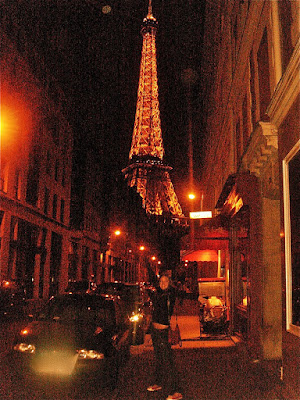This is fine if all you want to do is teach English and stay put in whatever town you work in, but I wanted to take advantage of my time abroad and travel. So I had to travel cheaply.
When traveling to major, foreign cities I save money two ways. The first way is by taking advantage of New Europe’s free walking tours. The greatest part about these tours is that they are absolutely free. They ask for tips at the end, and you can pay the guide what you will – based on however much money you have left to spend for the day or the merit of the information given on the tour or nothing at all (I’m too nice for option #3).
I went on their three hour walking tours in London and Amsterdam, saw almost all of the sights, and learned amazing facts about buildings I wouldn’t have given a second thought to if I had been wondering the city by myself.
They offer free tours in the following cities:
Amsterdam, Berlin, Brussels, Copenhagen, Dublin, Edinburgh, Jerusalem, Hamburg, London, Madrid, Munich, Paris, Prague, and Tel Aviv.

On my London free tour, I learned that this clock found on the side of the Royal Court of Justice was used in the Harry Potter films for the Hogwarts Express.

On my Amsterdam free tour, I learned that this part of the building had no windows because that's where they used to perform autospies, and it was considered too vulgar to show to the public.
The second way I save money is by always staying in a hostel that has a kitchen. Although they are sometimes more expensive to stay at than their kitchen-free counterparts, you will save tons of money if you use the kitchen facilities instead of having to eat out for every meal.
While I do think tasting the local food is a huge part of traveling, it isn’t necessary to eat out for every meal. Also, in a lot of places it is cheaper to eat out for lunch (Paris, Stockholm) than dinner. You can experience the local gastronomy for cheaper at lunch, then go home and cook yourself some pasta with red sauce for dinner in the hostel kitchen.
In some hostels, they even have a cabinet of “free food,” or food left behind by earlier travelers, in the kitchen. Be sure to browse and see if there isn’t anything worth eating in there before you head to the market. You’d be surprised how often people leave food behind.

Me, enjoying a delicious dinner of pasta, red sauce, and cauliflower in my hostel in Stockholm, plus a random fellow hostel-er, and the kitchen where I cooked said delicious dinner. Also a Swedish beer (On a side note: Swedish beer is like 3% alcohol per volume. Living so close to Belgium I'm used to 8% beers. That beer did nothing for me).
One of the easiest ways to save money while traveling, however, is to explore locally. No need to buy a plane ticket, or find a place to sleep. While Lille is a really wonderful city and ideally located for traveling all around Europe, I have hopped on the commuter trains in order to explore other, smaller cities in the area. Just because it isn’t a nation’s capital or recognizable city name doesn’t mean it has nothing to offer. Get to know the small towns around you and you'll most likely discover hidden gems.

I walked along the beach at Dunkirk and stumbled upon old bunkers used in both WWI & WWII hidden among the sand dunes.
Do you have any advice for traveling cheaply?
Brooke vs. the World has asked travel bloggers to put together their best thrifty and resourceful travel tips for a helpful, free ebook. If you think you’re thrifty and would like to participate, check out the official rules.










